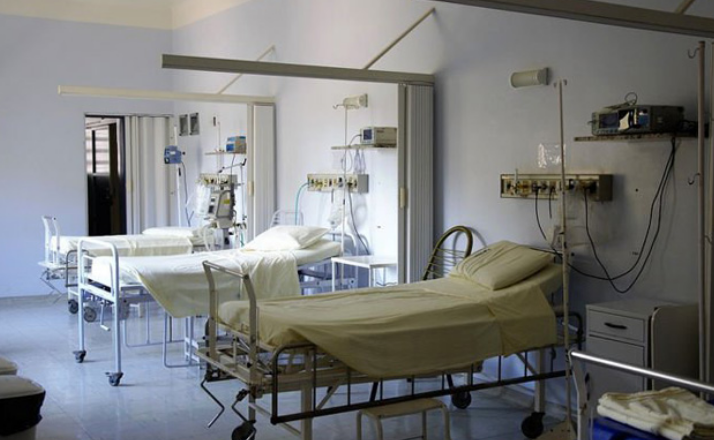An extraordinary and terrifying medical case revealed in the July issue of the American Journal of Transplantation proves that organ transplants can pass not only certain infectious diseases to recipients, but in rare cases, also cancer.
《美国移植杂志》七月刊披露的一个离奇骇人的病例证实,器官移植不但会把某些传染性疾病传给器官接受者,在极少数情况下还会把癌症传给接受者。
Patients known to have malignant tumors are often not able to donate their organs, but that was not the case of a 53-year-old woman who died of a stroke in 2007. She had no known conditions that could prevent doctors from transplanting her organs, and repeated tests revealed no sign of cancer. The woman’s kidneys, lungs, liver and heart were transplanted into donor recipients, but instead of saving their lives, they infected four of the five recipients with cancer, while the fifth died of unrelated causes shortly after the transplant.
已知患有恶性肿瘤的病人通常不能捐献自己的器官,但2007年死于中风的一名53岁女性并不属于这种情况。她没有任何已知的病症阻止医生移植她的器官,而反复的检查也没有显示出癌症的迹象。这名女性的肾、肺、肝及心脏被移植给了几个器官接受者,结果非但没有救这些人的命,反而让五个接受者中的四人都染上了癌症,而第五个人在接受器官移植后不久就因其他原因去世。
The four organ recipients had recovered well after the transplants, but 16 months later, the woman who had received the donor’s lung fell ill and was subsequently diagnosed with cancer in the lymph nodes in her chest. Unfortunately, we live in an age when someone is diagnosed with cancer every couple of minutes, but what made this case remarkable was that tests showed the cancerous cells were actually breast cancer cells. Further DNA analysis revealed that they had come from the organ donor.
四个器官接受者在接受移植后一开始都恢复得不错,但16个月之后,接受肺移植的女性就病倒了,随后被诊断出胸部的淋巴结有癌细胞。不幸的是,我们生活在一个每几分钟就有人被诊断出癌症的年代,但这个病例的离奇之处在于,测试结果显示,这些癌细胞实际上是乳腺癌细胞。进一步的DNA分析揭示,乳腺癌细胞来自器官捐赠者。
The lung recipient’s cancer spread and she died about a year after her disease was discovered. At the time, the remaining three organ recipients were notified that the deceased had become infected with cancer from the organ she had received, and advised to get themselves tested regularly just to make sure the same thing doesn’t happen to them. Unfortunately, that wasn’t enough…
接受肺移植女性的癌细胞扩散,并在发现癌症一年后去世。此时医院告知其余三位器官接受者,逝者的癌症来自她被移植的器官,并建议他们定期做检查,确保他们不会同样染上癌症。不幸的是,这样的防范还不够……
In 2011, four years after the transplant, the liver recipient was diagnosed with breast cancer cells in her liver. She was given the option of undergoing another transplant, but she refused for fear of potential complications. She opted for radiation treatment, which proved successful at first, but the cancer returned, and she died in 2014.
2011年,在接受器官移植四年后,接受肝移植的人被诊断出肝脏中有乳腺癌细胞。医生给她的选择是再一次接受肝移植,但她因担心出现潜在并发症拒绝了。她选择接受放射疗法,一开始还比较成功,但后来癌症复发,她于2014年去世。
The person who had received the left kidney in 2007, was diagnosed with cancer in 2013, six years after the transplant. The disease had already spread to several organs when it was discovered, and the patient passed away two months later.
2007年接受左肾移植的人于2013年,也就是移植6年后,被诊断出癌症。发现癌症时癌细胞已经扩散到几个器官,病人于两个月后离世。
The right kidney was transplanted into a 32-year-old man. In 2011, tests revealed breast cancer cells in his transplanted organ, but he underwent another surgery to have the kidney removed, underwent chemotherapy and stopped taking medicine that suppressed his immune system. He has been cancer free for 10 years.
右肾被移植到一个32岁的男子身上。2011年,检查结果显示,在他被移植的器官内发现了乳腺癌细胞,但他做了一个摘除肾脏的手术,接受了化疗,并停服抑制免疫系统的药物。如今距离他癌症痊愈已有十年。
"Many reports have shown that cancer transmission can occur in solid organ transplantation,” the authors of the recently published case note wrote. “However, this is the first report describing breast cancer transmission after a multi-organ procedure from one donor to four recipients.”
最近这篇病例解析报告的作者写道:“许多报告显示,癌症传播可能在实体器官移植中发生。不过,这是首份描述一对四多器官移植中乳腺癌传播的病例报告。”

It’s worth pointing out that while terrifying, this case is incredibly rare. Dr. Lewis Teperman, director of organ transplantation at Northwell Health in New Hyde Park, New York, writes that passing cancer through organ donation is “very uncommon”, with chances varying between 0.01 and 0.05 percent.
值得指出的是,尽管很骇人,这种情况还是十分罕见的。位于纽约新海德公园的诺斯维尔保健集团器官移植中心主任路易斯·塔伯曼医生写道,通过器官移植传播癌症“很不寻常”,几率只有0.01%到0.05%之间。
It’s not clear exactly how the breast cancer remained undetected during the screening performed before the transplants, or how it was able to grow in each of the four patients. Researchers believe that the donor may have had “micro metastases”, groups of cells too small to be detected by imaging tests, and that immunosuppressant drugs played a part in helping the cancer spread. Such drugs are taken by organ recipients so that their bodies don’t reject the new organs, but that means that the cancer cells aren’t rejected either.
目前还不清楚为什么器官移植前的筛查没有检测出乳腺癌细胞,以及癌细胞为什么会在四个接受者体内生长。研究人员认为,捐赠者身上的癌细胞也许有过“微转移”,只是细胞群太小,影像学检查检测不到。此外,器官接受者服用的免疫抑制剂也有助于癌细胞扩散。接受者服用这种药物是为了让身体不排斥新器官,不过这意味着癌细胞也不受排斥。
"This extraordinary case points out the often fatal consequences of donor-derived breast cancer,” researchers concluded, “and suggests that removal of the donor organ and restoration of immunity can induce complete remission.”
研究人员得出结论说:“这个离奇病例说明,源于捐赠者的乳腺癌通常是致命的,并指出,摘除捐赠移植的器官、恢复免疫系统的正常运转可以免受其害。”













